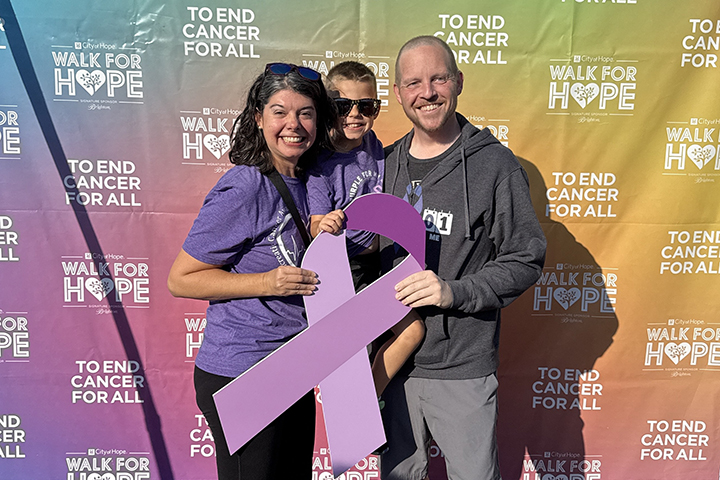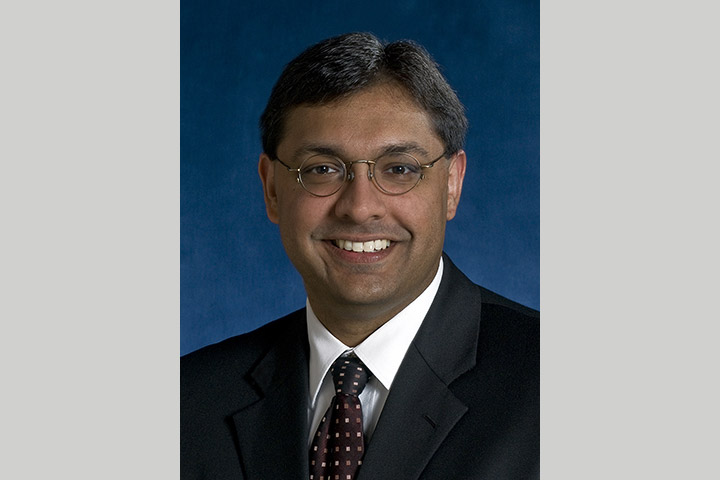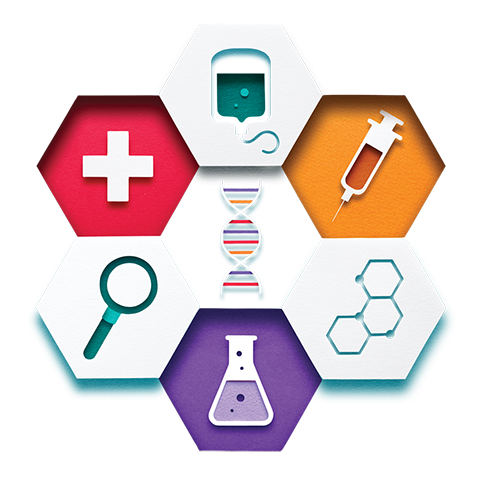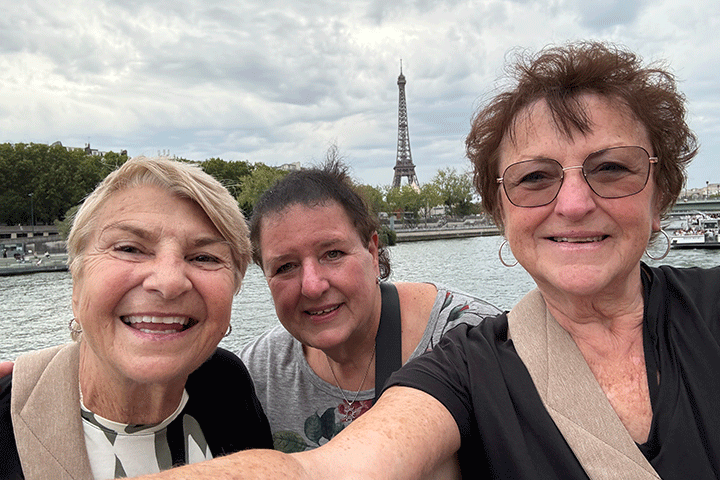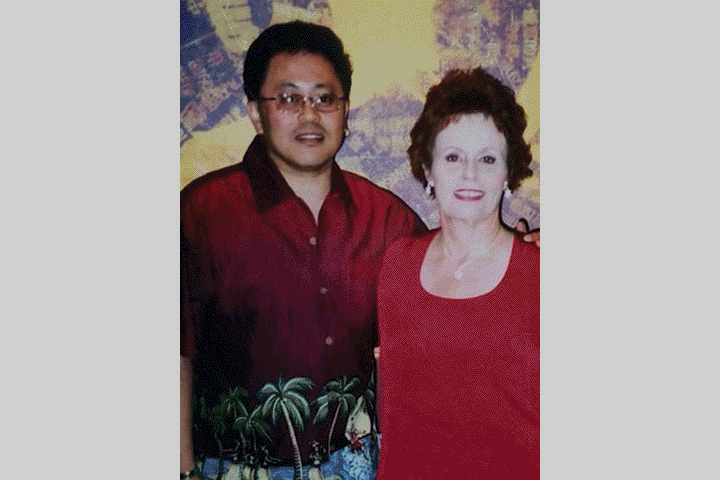Endurance Athlete Enduring Pancreatic Cancer Treatment
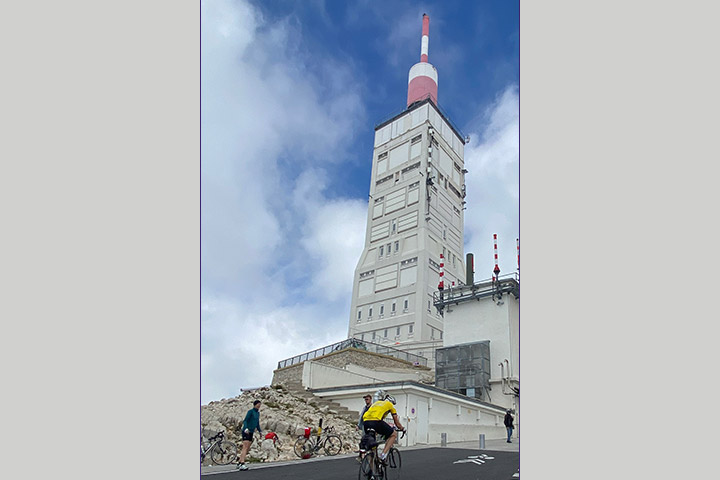
- Chemotherapy with mFOLFIRINOX and gemcitabine/Abraxane
- Surgery to remove the pancreatic tumor and the metastases in my abdomen
- Heated chemotherapy in my abdominal cavity
- After recovering from surgery, chemotherapy with gemcitabine/capecitabine
Just a few months after completing an Ironman triathlon, I began experiencing widespread and frequent abdominal pain.
In a single month, I lost nearly 20 pounds. Initially, I tried to explain away my rapid weight loss, but as an endurance athlete and a physician (I specialize in pediatric radiology), I knew something was wrong. So I went to my doctor and described my symptoms. No immediate diagnosis was obvious, so my doctor ordered a number of tests (in sequence) to investigate my colicky abdominal pain, including an abdominal CT, an abdominal MRI, two colonoscopies, an endoscopic ultrasound with pancreatic biopsy, and a diagnostic laparoscopy with an ileostomy formation (an ileostomy is a surgically constructed hole that connects the lower intestine to the outside of the body, where a pouch is worn to collect food wastes) to bypass my obstructed colon. The tumor in the tail of my pancreas had grown into the adjacent colon and spleen, producing a large intestine obstruction. The pancreatic tumor in the tail of my pancreas was discovered incidentally during the abdomen CT.
On May 21, 2020, following a diagnostic laparoscopy, I was diagnosed with stage IV pancreatic adenocarcinoma of my pancreatic tail with peritoneal metastases. Luckily, I had no metastases in my liver. The abdominal pain that had plagued me for months was due to a near complete large intestinal obstruction from local tumor growth.
A Novel Treatment Approach
My initial biopsy sample underwent genetic testing and showed several possible genetic targets, including the ATRX gene mutation, which suggested I would have a better response to platinum drugs (further genetic testing found no other useful mutations). I began seeing Dr. Mark Lewis at Intermountain Cancer Center in Murray, Utah. We developed an aggressive treatment plan that included seven cycles of mFOLFIRINOX and six cycles of gemcitabine/Abraxane.
This would be followed by cytoreductive surgery, with Dr. Laura Lambert and Dr. Courtney Scaife at Huntsman Cancer Institute, Salt Lake City, Utah. Cytoreductive surgery removes all the cancer sites in the abdominal cavity; this procedure would remove the cancer in my pancreas as well as metastases in my abdominal cavity. I learned about cytoreductive surgery and intraperitoneal chemotherapy by asking Dr. Lewis about novel surgical approaches for patients with peritoneal metastases, and he referred me to Dr. Lambert.
I found mFOLFIRINOX difficult to tolerate, and experienced fatigue, nausea, and weight loss. While the gemcitabine/Abraxane was slightly less toxic, it too was difficult, and finished off whatever hair I had left after the mFOLFIRINOX. Despite the side effects, I had an unusually good tumor response to gemcitabine/Abraxane with significant decrease in both primary tumor size and peritoneal metastases. This allowed my surgeons Dr. Lambert and Dr. Scaife to completely remove the tumor during my cytoreductive surgery. They also elected to perform peritoneal stripping (removal of the lining of the abdominal cavity with the adherent metastases) followed by intraperitoneal chemotherapy, which put the chemotherapy drugs directly into my abdominal cavity.
This unique aggressive treatment plan resulted from hours of discussion and multiple diagnostic laparoscopies that showed an excellent response to treatment. My overall good health and consistent exercise routine were other considered factors that made our approach possible, along with the presence of an excellent support system, which was instrumental in my recovery from the cytoreductive surgery. That said, the cancer institute tumor board made it clear that this is not the standard of care and my receiving this approach for advanced pancreatic cancer was fairly unique.
A Challenging Recovery
In all honesty, my recovery from the cytoreductive surgery was extremely challenging. At first, I had to use a walker, and I remained on oxygen for a month. It was five weeks before I began feeling any better or was able to leave the house. While I had been able to continue working during my chemotherapy, I took a six-week leave of absence to recover from the surgery. Without the support system I had in place, I would not have been able to manage.
After the surgery, I completed four cycles of post-surgery chemotherapy with gemcitabine/capecitabine, and finally, surgery to remove the ileostomy and reattach my small and large intestine. I had expected the oral capecitabine to be easy to tolerate compared to the intravenous chemotherapy I had received earlier, but that was not so. I was fatigued and nauseous during the entire four rounds of treatment, despite my use of first-line antinausea medication. My treatment regimen called for daily doses, on a schedule of three weeks on followed by one week off, which may have been a factor in my side effects.
Since April 2021, I have been on routine surveillance. I see my oncologist every three months for clinical re-evaluation, CA 19-9 level, and at some visits an abdominal MRI. One year after my big cytoreductive surgery, my CA 19-9 cancer antigen level remains normal.
Back in the Bike Saddle Again
After one year of chemotherapy and five surgeries, I am cancer free, working full-time and back on my bike! I have regained the weight I lost and am less fatigued, so I am thrilled to be exercising again. Last September, I biked to the top of a mountain in France, and I plan to enter more races in the coming year.
As a result of my cancer, I have become not only a kinder and more tolerant person, but I have gained new insight into the experiences that my patients are facing, and am better able to empathize with their struggles.
Finally, while I don’t know how much time I have left, I am trying to maximize the time I do have. It is easy to succumb to the mentality of futility, but by trying to be optimistic, I have enjoyed each day more.
Personal anecdotal experience and published scientific reports have shown that exercise fitness and optimistic outlook are correlated with better outcomes. My personal advice would be to start/continue an exercise program that you can tolerate, keep working if you can, talk to friends and family about your cancer so that they can better support you, keep up your hobbies, and try to remain optimistic that new therapies and trials are coming out all of the time. I attribute my treatment success to date to all of these.
